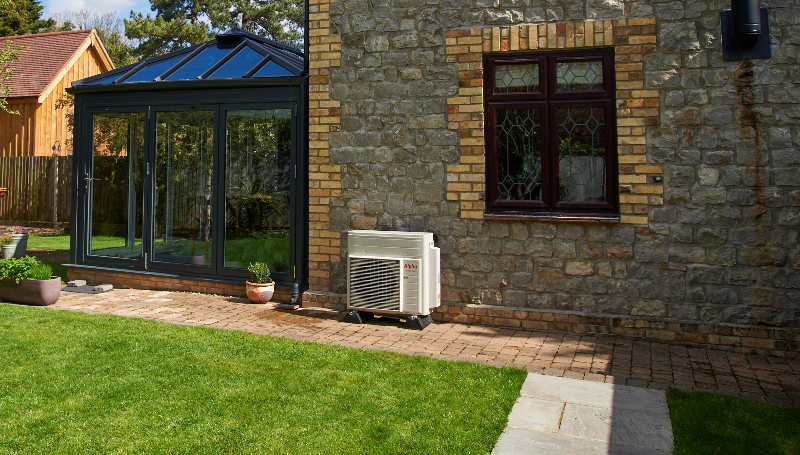
Darran Smith, Technical Manager at Alpha, discusses how Hybrid Systems could be the stepping stone needed to get more homes into sustainable heating.
It is proving to be a bit of an uphill journey for the domestic heat pump sector in the UK. The government committed to an ambitious target of phasing out gas boilers by 2035 and installing 600,000 heat pumps per year as part of its 2050 net zero strategy. Despite grants in place, heat pump uptake remains low with just 1% of UK homes currently heated this way.
However, the tide is turning, and customer curiosity is continuing to grow. It’s reported that 49% of UK consumers are interested in low-carbon heating solutions, with Octopus Energy highlighting a 144% increase in homeowners’ interest in heat pumps in 2024. This bodes well for heat pump installers but the expectation of what is needed to complete an installation can result in the heat pump option being dismissed as ‘too expensive’ or ‘difficult’ to install in certain home set ups.
Larger homes with system boilers and hot water storage are the most likely to be ready for a full heat pump installation. For the rest of us, the challenges around external space for the heat pump, internal space for the hot water storage plus the pipework and radiator design needed to accommodate lower water temperatures looks daunting.
Add to that list the fact that around 80% of UK homes are currently heated by a combi boiler, and switching to sustainable heating starts to look like a big ask.
However, before all installers simply give up on the task of supporting homeowners to make a switch to clean energy, it’s worth reflecting on the fact that the alternative is a new gas boiler, locking the home into gas heating with for another 10-15 years: an option that is uncomfortable both for national carbon reduction targets and for homeowners trying to do their bit to reduce climate change.
The hybrid option
A more appealing option, combining the familiar performance of a combi boiler with the efficiency of a heat pump, is a hybrid system. Hybrids are gaining ground as a viable alternative for homes which aren’t fully ready for the heat pump revolution but whose owners want to take their first step into low-temperature heating.
Purposed built hybrid systems like Alpha’s E-Tec Hybrid consist of a smaller, hybrid-specific heat pump installed outside which is then linked via a smart controller to a hybrid-specific combi boiler replacing the existing unit. The heat pump provides consistent heat flow into the home, ideal during spring and autumn. The linked gas boiler kicks in to provide a boost during particularly cold spells and when instant hot water is needed. Compared with the perceived ‘only option’ of replacing a combi with a like-for-like, a hybrid system can reduce carbon emissions by 52%.
It’s an attractive prospect as it doesn’t require significant overhaul of the home. There’s no need for a large hot water tank which takes up space, nor is it likely that any pipework or radiators will need to be replaced. This means average sized homes which typically run on combi boilers are now able to step into low-temperature heating.
Not all hybrids are equal, and we recommend checking how the system is set up. The ‘best practice’ would be a specific hybrid system managed by an integrated smart controller. Such systems see the controller manage energy tariffs to ensure the best balance of heat demand against cost is achieved. It ensures customers aren’t paying over the odds for heating.
Training tools
Lack of knowledge and training is often cited as another reason for the slow take up of heat pump technology, but there no reason at all why installers can’t become part of the solution rather than being seen as part of the problem.
Clearly a week-long training course, taking contractors off their jobs for the whole week, is an expensive commitment. While this level of technical training may be required for complex systems, Alpha’s hybrid training programme can be completed within a single day. On completing this on-boarding process, the installer will have all the necessary tools and knowledge to be able to install hybrid systems. And once the benefits of this accessible green energy solution have been fully communicated, the prospect of encouraging homeowners to make the switch to low-carbon heating is far more appealing.
Stepping stone
Heat pumps are the current long-term answer to our low carbon heating needs. Not every home is ready for the complete transition and hybrids provide a practical stepping stone on the journey. They bridge the gap between traditional gas and heat pumps, easing everyone into the way low-temperature heating works. As familiarity with the systems, technology, and demand continue to grow we’ll be well on our way to a more sustainable way to heat homes.













